In today’s interconnected global marketplace, efficient logistics solutions are critical for businesses aiming to import goods from countries like China. Among the various shipping methods available, door-to-door shipping stands out as a highly convenient option that simplifies the transportation process. This comprehensive logistics service facilitates the seamless movement of goods directly from the seller’s location to the buyer’s address, eliminating the need for the buyer to coordinate multiple transportation arrangements. Understanding the intricacies of door-to-door shipping, including the associated costs, shipping methods, and customs procedures, is essential for making informed decisions that enhance operational efficiency and customer satisfaction. In this guide, we will explore the key aspects of door-to-door shipping, providing valuable insights for businesses looking to optimize their importing strategies.
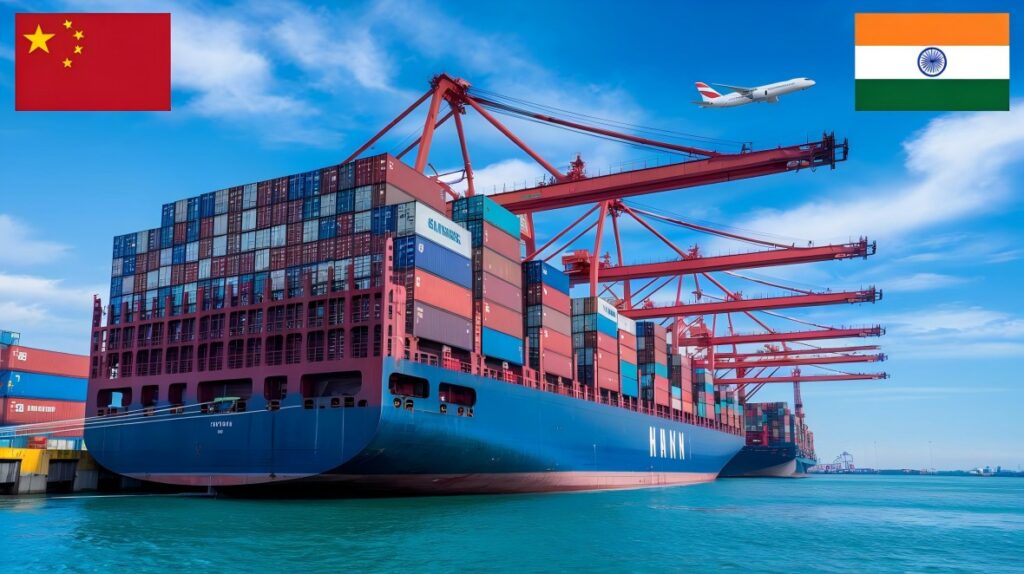
Understanding Door-to-Door Shipping
Door-to-door shipping is a comprehensive logistics service that facilitates the transportation of goods directly from the seller’s location to the buyer’s designated address. This shipping method minimizes the need for the buyer to engage in any additional handling or transportation arrangements, providing a streamlined process. With door-to-door shipping, the logistics provider manages every aspect of the shipping process, including pickup, transit, customs clearance, and final delivery.
Key features of door-to-door shipping include:
- Convenience: The service eliminates the need for the buyer to coordinate multiple transport modes or routes, making the process hassle-free.
- Full-Service Handling: Freight forwarders oversee all elements of the shipping journey, ensuring compliance with regulations and managing documentation.
- Tracking and Transparency: Customers receive real-time updates on their shipments, allowing for better planning and peace of mind.
In today’s globalized economy, where businesses increasingly rely on international suppliers, understanding the significance of door-to-door shipping is crucial for smooth operations and customer satisfaction.
Why Choose Door-to-Door Shipping?
Opting for door-to-door shipping offers several advantages over traditional shipping methods:
- Time Efficiency: By consolidating various shipping processes, freight forwarders can expedite deliveries, ensuring goods arrive promptly at their destination.
- Cost-Effectiveness: While door-to-door shipping may seem more expensive upfront, the elimination of multiple transport fees and the potential for reduced handling costs can lead to savings in the long run.
- Simplified Customs Clearance: Experienced freight forwarders, such as Dantful International Logistics, handle customs documentation and compliance, minimizing delays that can arise from regulatory issues.
- Risk Mitigation: Professional freight forwarding companies often offer Insurance Services to protect your goods during transit, providing additional peace of mind.
The ability to focus on core business activities, knowing the logistics are managed efficiently, makes door-to-door shipping an appealing choice for importers.
Shipping Methods from China to India
When shipping goods from China to India, various methods cater to different needs and budgets. Below are the primary shipping methods available for door-to-door delivery:
Express Shipping Door to Door
Express shipping is the fastest option available for door-to-door shipping. Ideal for urgent deliveries, this method utilizes premium carriers to expedite shipments through air transport. Some key points to consider:
- Speed: Deliveries can often be made within 1 to 3 business days, making it suitable for time-sensitive shipments such as electronics or medical supplies.
- Cost: While express shipping offers speed, it typically comes with a higher price tag compared to other methods.
- Tracking: Most express carriers provide robust tracking systems, allowing customers to monitor their shipments from pickup to delivery.
For businesses looking to ship critical items quickly, express shipping serves as an effective solution, ensuring timely arrival.
Air Freight Door to Door
Air freight is another efficient option, particularly for larger shipments that are not as time-sensitive as those sent via express services. This method is characterized by:
- Balance of Speed and Cost: Air freight offers a compromise between express shipping and sea freight. Deliveries usually range from 3 to 7 days.
- Capacity: Suitable for various types of cargo, including high-value items and perishables, air freight can accommodate significant volumes.
- Direct Services: Many freight forwarders provide direct door-to-door air freight solutions, simplifying the logistics process.
Air freight is an excellent choice for companies seeking a balance between speed and cost-effectiveness.
Sea Freight Door to Door
Sea freight is the most economical choice for shipping large volumes of goods internationally, making it particularly appealing for bulk items. Key aspects include:
- Cost-Efficiency: Shipping via ocean freight can significantly lower transportation costs, especially for large shipments.
- Longer Transit Times: Typically, sea freight takes longer, with delivery times ranging from 15 to 40 days, depending on distance and port operations.
- Flexible Options: Freight forwarders offer various container sizes to accommodate different shipment volumes, allowing businesses to optimize their logistics strategies.
For businesses with less urgent shipping needs, sea freight provides a robust solution for importing goods from China to India without breaking the bank.
In conclusion, understanding the nuances of door-to-door shipping and the available methods is essential for businesses looking to import goods from China effectively. Whether you require speed, cost-effectiveness, or flexibility, options like express shipping, air freight, and sea freight each cater to specific needs. For a hassle-free international logistics experience, consider partnering with Dantful International Logistics, a highly professional and cost-effective provider that offers one-stop international logistics services tailored to global traders.
You may be interested in the following related articles:
- Shipping From China To Vietnam
- Shipping From China To Thailand
- Shipping From China To South Korea
- Shipping From China To Philipines
- Shipping From China To Pakistan
- Shipping From China To Japan
- Shipping From China To Indonesia
- Shipping From China To Singapore
- Shipping From China To Malaysia
Cost of Door-to-Door Shipping from China to India
Factors Affecting Shipping Costs
When considering door-to-door shipping from China to India, several factors influence the overall cost:
-
Shipping Method: Different modes of transport (express, air freight, sea freight) come with varying price points. Express shipping is typically the most expensive, while sea freight tends to be the most economical.
-
Weight and Volume: The size and weight of the shipment are critical determinants. Shipping rates often depend on the dimensional weight or actual weight, whichever is greater.
-
Distance and Route: The distance between the origin and destination, along with the chosen shipping route, impacts costs. Longer distances and routes with limited transport options may incur higher fees.
-
Customs Duties and Taxes: Import duties and taxes applied by Indian customs can significantly affect total shipping costs. These additional charges should be factored in during budgeting.
-
Insurance and Handling Fees: Additional services, such as Insurance Services for cargo protection and handling fees for special packaging or conditions, can add to the shipping costs.
-
Peak Season Rates: During peak shipping seasons, such as the holiday season, freight rates can surge due to increased demand. Staying informed about peak times can help in planning budget-friendly shipping options.
Cost Comparison by Shipping Method
To provide a clearer understanding of the shipping costs involved, the following table outlines a comparison of estimated costs for different shipping methods from China to India:
| Shipping Method | Estimated Cost (USD) | Transit Time (Days) | Best Suited For |
|---|---|---|---|
| Express Shipping | $25 – $50 per kg | 1 – 3 days | Urgent, time-sensitive shipments |
| Air Freight | $10 – $20 per kg | 3 – 7 days | Medium urgency, larger shipments |
| Sea Freight | $3 – $5 per kg | 15 – 40 days | Bulk shipments, cost-sensitive goods |
These estimates can fluctuate based on the factors mentioned earlier, so it is advisable to consult a logistics provider for precise quotes tailored to specific shipping needs.
Shipping Times in Door-to-Door Shipping
Estimated Durations for Different Shipping Methods
The duration of door-to-door shipping from China to India varies significantly depending on the shipping method selected. Below is a basic outline of the estimated transit times for each method:
- Express Shipping: 1 to 3 business days
- Air Freight: 3 to 7 business days
- Sea Freight: 15 to 40 business days
These timelines include the time taken for customs clearance, local handling, and delivery to the final destination.
Factors That Can Affect Delivery Times
Several factors may influence the delivery times of door-to-door shipping:
-
Customs Clearance Delays: Unforeseen issues with documentation can lead to delays at customs. It is essential to ensure all paperwork is accurate and submitted on time.
-
Weather Conditions: Adverse weather, such as storms or heavy rainfall, can disrupt shipping schedules, especially for maritime transport.
-
Port Congestion: Busy ports may experience delays due to congestion. It can affect both the departure and arrival of shipments.
-
Transportation Infrastructure: The quality of roads and transportation facilities in both China and India can impact delivery times, especially for land transport.
-
Holidays and Peak Seasons: National holidays and peak shipping periods can introduce delays due to increased traffic and reduced workforce availability.
Employing a reliable freight forwarder, like Dantful International Logistics, can help mitigate these risks and ensure a smoother shipping process, providing support with customs clearance and insurance services as part of their comprehensive logistics solutions.
Customs Clearance and Duties
Customs Procedures in India
Navigating the customs clearance process in India is a critical aspect of importing goods. Proper knowledge of the procedures can streamline the import process and reduce the risk of delays. Below are key steps involved in customs clearance in India:
- Documentation Preparation: Importers must prepare several documents, including:
- Bill of Lading or Airway Bill
- Commercial Invoice
- Packing List
- Import License (if required)
- Certificate of Origin
- Any additional documentation depending on the nature of the goods (e.g., quality certificates, health certificates).
- Filing Bill of Entry: Upon arrival of the goods in India, the importer or their authorized customs agent must file a Bill of Entry within 30 days of arrival. This document is essential for customs clearance and must include detailed information about the shipment.
- Payment of Duties: Importers are required to pay applicable customs duties and taxes. Payment must be made before the clearance of goods. The duty rates depend on the classification of the goods in accordance with the Customs Tariff Act.
- Cargo Examination: Customs officials may conduct a physical examination of the cargo to ensure it matches the declared information. Random inspections can occur, particularly for high-risk shipments.
- Receiving Clearance: Once all procedures are completed, and duties have been paid, customs will release the shipment for delivery. This process may take anywhere from a few hours to several days, depending on the efficiency of the customs office and completeness of documentation.
For smooth customs clearance, engaging a knowledgeable freight forwarder like Dantful International Logistics can be beneficial, as they possess expertise in managing customs procedures and ensuring compliance.
Import Duties and Taxes
Importing goods into India incurs various duties and taxes, which can significantly impact the total cost of shipments. The main charges include:
-
Basic Customs Duty (BCD): This is the primary duty imposed on imported goods, calculated as a percentage of the transaction value. Duty rates vary based on the classification of goods.
-
Integrated Goods and Services Tax (IGST): This tax is levied on the supply of goods and services, including imports. The rate is typically aligned with the GST rates applicable to similar goods sold domestically.
-
Additional Duties: Certain goods may also be subject to additional duties, such as the Countervailing Duty (CVD) and Safeguard Duty, depending on the import circumstances.
-
Customs Cess: For specific products, a cess may apply, which is an additional charge on top of the customs duty and taxes.
Understanding these duties and taxes is essential for importers to calculate the total cost and avoid unexpected expenses. Importers should consult with their logistics partner or customs broker for precise calculations and insights into applicable duties for specific goods.
Insurance and Tracking
Cargo Insurance
Securing cargo insurance is a vital step in the shipping process, providing financial protection against potential losses or damages during transit. As goods travel through various modes of transport, the risk of accidents, theft, or natural disasters increases. Here are key aspects of cargo insurance:
- Types of Coverage: Cargo insurance policies generally offer two primary types of coverage:
- All-Risk Coverage: This comprehensive policy covers a wide range of potential losses, including damage from accidents, environmental hazards, and theft.
- Named Perils Coverage: This policy covers only specific risks outlined in the policy, such as fire, collision, or theft.
- Assessment of Value: It is essential to accurately assess the value of the goods being shipped. Proper valuation ensures that the insurance coverage adequately reflects potential losses.
- Claim Process: In the event of loss or damage, the insured must file a claim with the insurance provider, providing relevant documentation such as the policy, shipping documents, and evidence of loss. Timely reporting is essential for successful recovery.
Choosing a reliable insurance provider is crucial. Dantful offers Insurance Services tailored to meet specific shipping needs, providing peace of mind during transit.
Tracking Your Shipment
Tracking shipments is an integral part of modern logistics, allowing businesses and customers to monitor the progress of their goods in real-time. With advancements in technology, many logistics providers now offer robust tracking systems. Here’s what to know about tracking shipments:
- Real-Time Tracking: Most freight forwarders, including Dantful, provide online tracking platforms where customers can input their shipment details to receive live updates on location and status.
- Benefits of Tracking:
- Transparency: Customers gain visibility into the shipping process, allowing them to manage inventory and plan accordingly.
- Proactive Issue Resolution: Early detection of potential delays enables importers to take corrective actions, such as adjusting delivery schedules or contacting the logistics provider.
- Notification Systems: Many logistics providers offer automated notifications to inform clients of significant updates, such as arrival at customs, departure from ports, or delivery confirmation.
Effective tracking not only enhances customer satisfaction but also contributes to a more efficient logistics operation. Partnering with a reputable freight forwarder like Dantful International Logistics ensures that you benefit from reliable tracking services throughout the shipping process, facilitating smooth operations and informed decision-making.
Choosing the Right Shipping Partner
Evaluating Shipping Companies
Selecting the right shipping partner is crucial for the success of your import operations. A reliable shipping company can enhance efficiency, reduce costs, and ensure timely delivery of goods. When evaluating potential shipping partners, consider the following factors:
-
Experience and Expertise: Look for companies with a proven track record in international logistics and freight forwarding. Experienced providers are often more adept at navigating complex customs regulations and logistics challenges.
-
Range of Services Offered: Ensure that the shipping company provides a comprehensive suite of services that align with your needs, such as door-to-door shipping, customs clearance, insurance services, and warehouse services. A one-stop logistics provider can streamline the shipping process significantly.
-
Reputation and Reviews: Research the shipping companies’ reputations by reading customer reviews and testimonials. Look for feedback regarding reliability, customer service, and the handling of cargo. Recommendations from other businesses in your industry can be particularly valuable.
-
Technology and Tracking Capabilities: Evaluate the technology used by the shipping company for tracking shipments. Advanced tracking systems provide transparency and real-time updates, which can help you manage inventory and logistics more effectively.
-
Cost and Value: While cost is an important factor, it should not be the sole consideration. Analyze the overall value provided by the shipping company, including service quality, reliability, and additional features. Request detailed quotes to compare costs accurately.
-
Customer Support: Effective communication is vital in international shipping. Choose a shipping partner that offers responsive customer support and a dedicated representative who can address your inquiries and concerns promptly.
Dantful Door-to-Door Service
Dantful International Logistics offers a highly professional door-to-door shipping service designed for businesses looking to import goods efficiently from China to various locations worldwide, including India. Here are some key features of Dantful’s service:
-
Comprehensive Logistics Solutions: Dantful provides a full range of logistics services, including customs clearance, air freight, sea freight, and insurance services, ensuring a seamless shipping experience from pickup to delivery.
-
Expert Guidance: Dantful’s team of logistics experts is well-versed in international shipping regulations and procedures, enabling them to navigate complexities and handle documentation efficiently.
-
Real-Time Tracking: Customers can access real-time tracking updates through Dantful’s user-friendly platform, allowing for better visibility and planning throughout the shipping process.
-
Cost-Effective Solutions: With competitive pricing and a focus on value, Dantful aims to provide cost-effective shipping solutions that meet the needs of global traders.
-
Responsive Customer Service: Dantful prides itself on excellent customer service, offering support and guidance to clients throughout their shipping journey, ensuring all questions and concerns are addressed.
Choosing Dantful as your shipping partner means entrusting your logistics to an experienced and reliable provider committed to facilitating your import operations.
Dantful International Logistics Services:
- Dantful Ocean Freight Services
- Air Freight From China
- Amazon FBA Freight Forwarding
- WAREHOUSE Services
- One-Stop Customs Clearance Solution
- Cargo Insurance Services in China
- DDP Shipping Services By Dantful Logistics
- Out of Gauge Cargo Transportation Shipping Services
Tips for a Smooth Shipping Experience
Pre-Shipment Planning
Effective pre-shipment planning is essential to ensure a smooth shipping process. Here are some tips to consider:
-
Determine Shipping Requirements: Clearly outline the shipping requirements for your goods, including dimensions, weight, handling instructions, and any special conditions.
-
Choose the Right Shipping Method: Based on your urgency and budget, select the appropriate shipping method—be it express, air freight, or sea freight.
-
Compile Documentation: Prepare all necessary documentation well in advance, including invoices, packing lists, and customs forms. Ensure that all information is accurate and complies with regulations.
-
Coordinate with Suppliers: Communicate with your suppliers to ensure that they understand your shipping requirements and timelines. This coordination can help prevent delays and ensure that products are ready for shipment on time.
-
Get Quotes from Multiple Providers: To find the best value, request quotes from different shipping providers, comparing costs, services, and delivery times.
During Shipment
Monitoring the shipment process is crucial for addressing any potential issues that may arise. Here are some tips for during the shipment:
-
Use Tracking Tools: Regularly check the tracking updates provided by your shipping partner. This will help you stay informed about the status of your shipment and any potential delays.
-
Stay in Communication: Maintain open communication with your logistics provider. If any issues arise, such as customs delays or logistical challenges, addressing them quickly can mitigate further complications.
-
Prepare for Customs: Ensure that all required documentation is submitted correctly and promptly to expedite customs clearance. Be aware of the potential for inspections and keep your shipment organized to facilitate the process.
Post-Shipment
Once the shipment arrives, certain steps will help ensure a smooth transition from transportation to delivery:
-
Inspect Goods Immediately: Upon receiving your shipment, conduct a thorough inspection of the goods. Check for any damage, discrepancies in quantity, or quality issues.
-
File Claims if Necessary: If any issues are detected, such as damaged or missing items, file a claim with the shipping company or insurance provider as soon as possible.
-
Provide Feedback: Share your experiences with your shipping partner. Providing feedback can help improve their services and strengthen your business relationship.
-
Evaluate Supplier Performance: Assess the performance of your suppliers based on the quality and timeliness of the products delivered. This evaluation can guide future purchasing decisions.
By implementing these best practices throughout the shipping process, businesses can enhance their importing operations and minimize disruptions, leading to a more efficient and cost-effective supply chain.
FAQs
1. What is door-to-door shipping?
Door-to-door shipping is a logistics service that transports goods directly from the seller’s location to the buyer’s designated address, managing every aspect of the shipping process, including pickup, transit, customs clearance, and final delivery.
2. Why should I choose door-to-door shipping?
Door-to-door shipping offers convenience, time efficiency, and cost-effectiveness. It simplifies the logistics process, allowing importers to focus on their core business activities while freight forwarders manage shipping details, customs clearance, and documentation.
3. What shipping methods are available for door-to-door shipping from China to India?
The primary shipping methods include:
- Express Shipping: Fastest option (1-3 days) for urgent deliveries.
- Air Freight: Balanced speed and cost (3-7 days) for larger shipments.
- Sea Freight: Most economical option (15-40 days) for bulk shipments.
4. How are shipping costs determined for door-to-door services?
Shipping costs are influenced by factors such as:
- Shipping Method: Different modes have varying price points.
- Weight and Volume: Costs depend on the dimensional or actual weight of the shipment.
- Distance and Route: Longer distances and complex routes may incur higher fees.
- Customs Duties and Taxes: Import duties and taxes can significantly affect overall costs.
5. What are the estimated shipping costs for different methods from China to India?
| Shipping Method | Estimated Cost (USD) | Transit Time (Days) |
|---|---|---|
| Express Shipping | $25 – $50 per kg | 1 – 3 days |
| Air Freight | $10 – $20 per kg | 3 – 7 days |
| Sea Freight | $3 – $5 per kg | 15 – 40 days |
6. What should I know about customs clearance in India?
Key steps include preparing necessary documentation (e.g., Bill of Lading, Commercial Invoice), filing a Bill of Entry within 30 days of arrival, paying applicable duties, and ensuring cargo examination by customs officials.
7. Do I need cargo insurance?
Yes, securing cargo insurance is advisable to protect against potential losses or damages during transit. Policies can vary between all-risk coverage and named perils coverage.
8. How can I track my shipment?
Most freight forwarders, including Dantful International Logistics, provide online tracking platforms for real-time updates on shipment status, enhancing visibility and proactive issue resolution.
9. What factors can affect delivery times?
Delivery times can be influenced by customs clearance delays, weather conditions, port congestion, transportation infrastructure, and holidays or peak seasons.

Young Chiu is a seasoned logistics expert with over 15 years of experience in international freight forwarding and supply chain management. As CEO of Dantful International Logistics, Young is dedicated to providing valuable insights and practical advice to businesses navigating the complexities of global shipping.
The other language versions of this article
- كشف أسرار الشحن من الباب إلى الباب من الصين إلى الهند
- De geheimen van deur-tot-deur-verzending van China naar India ontrafelen
- Découvrez les secrets de l’expédition porte à porte de la Chine vers l’Inde
- Die Geheimnisse des Tür-zu-Tür-Versands von China nach Indien lüften
- Scopri i segreti della spedizione porta a porta dalla Cina all’India
- Descubriendo los secretos del envío puerta a puerta desde China a la India
- Desvendando os segredos do transporte porta a porta da China para a Índia
- Раскрываем секреты доставки «от двери до двери» из Китая в Индию
- Çin’den Hindistan’a Kapıdan Kapıya Nakliyenin Sırlarını Açığa Çıkarmak

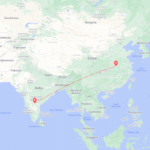









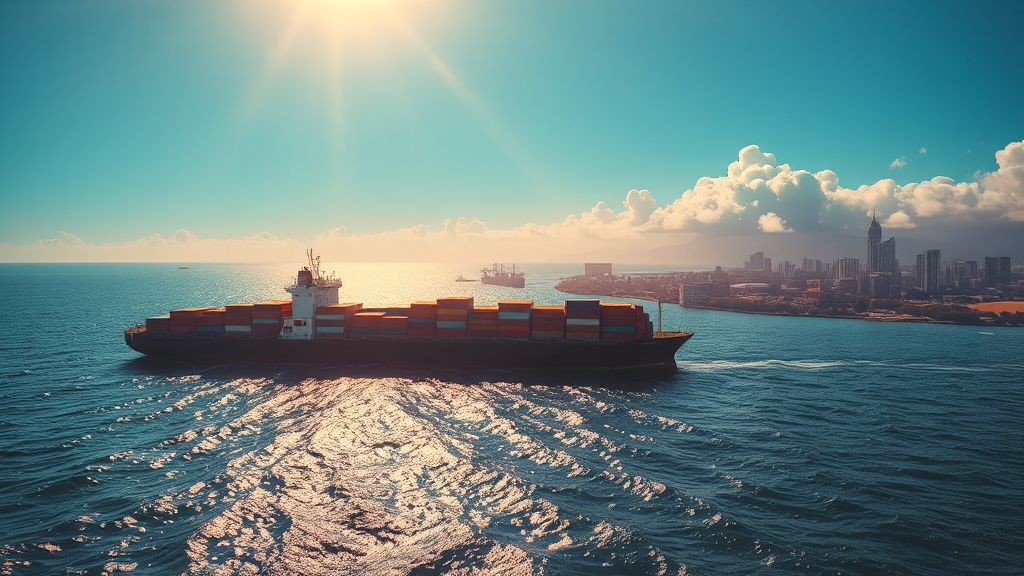

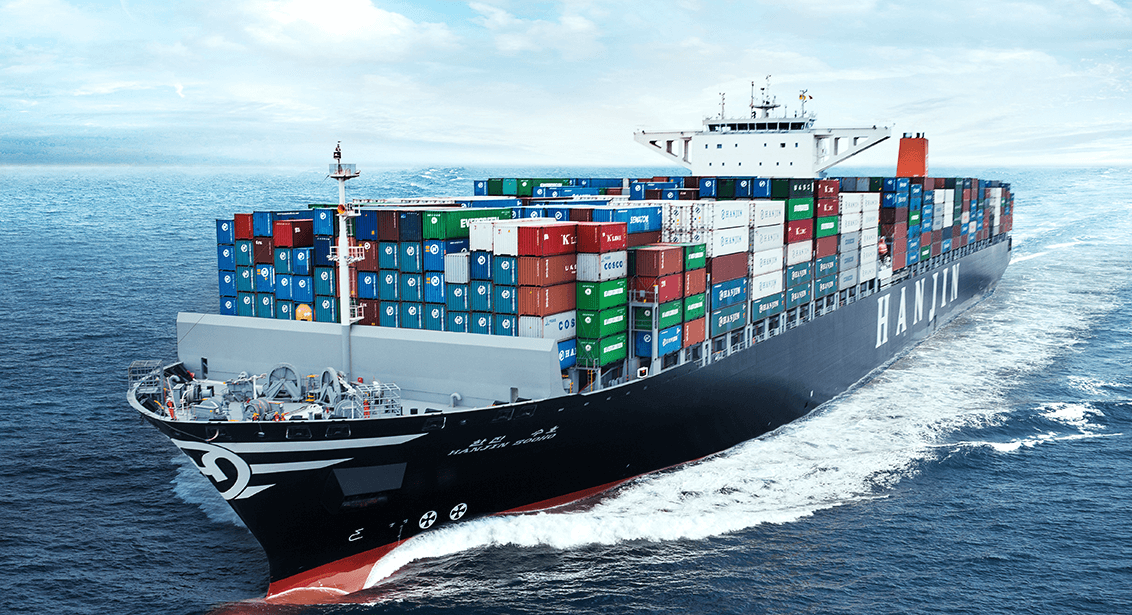
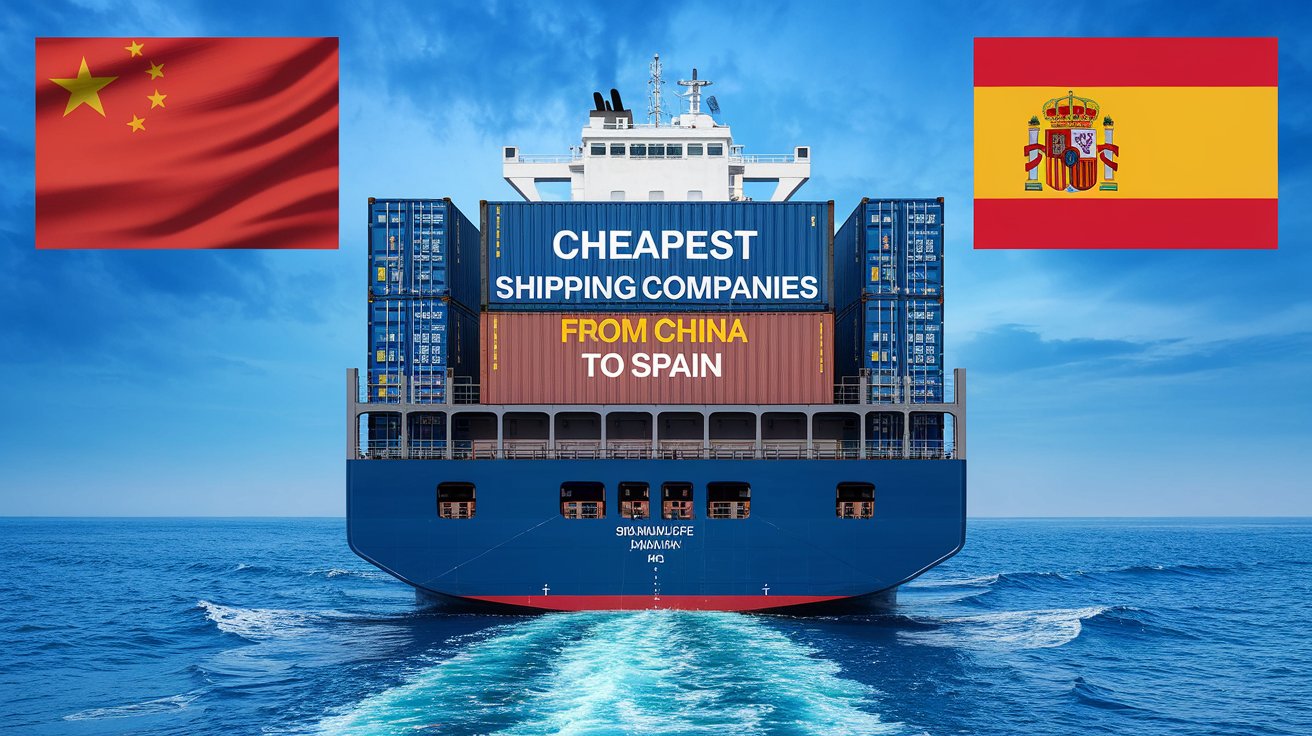
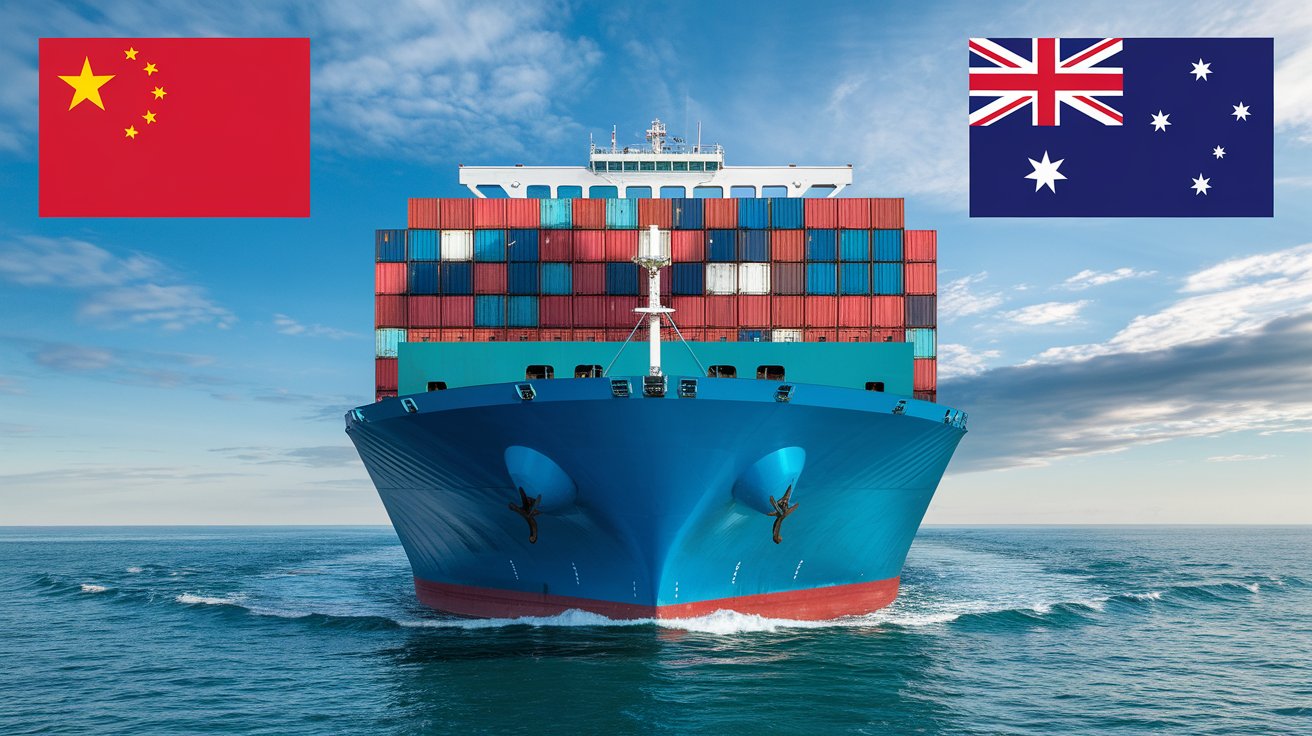





 Afrikaans
Afrikaans Shqip
Shqip አማርኛ
አማርኛ العربية
العربية Հայերեն
Հայերեն Azərbaycan dili
Azərbaycan dili Euskara
Euskara Беларуская мова
Беларуская мова বাংলা
বাংলা Bosanski
Bosanski Български
Български Català
Català Cebuano
Cebuano Chichewa
Chichewa 简体中文
简体中文 繁體中文
繁體中文 Corsu
Corsu Hrvatski
Hrvatski Čeština
Čeština Dansk
Dansk Nederlands
Nederlands English
English Esperanto
Esperanto Eesti
Eesti Filipino
Filipino Suomi
Suomi Français
Français Galego
Galego ქართული
ქართული Deutsch
Deutsch Ελληνικά
Ελληνικά Kreyol ayisyen
Kreyol ayisyen Harshen Hausa
Harshen Hausa Ōlelo Hawaiʻi
Ōlelo Hawaiʻi עִבְרִית
עִבְרִית हिन्दी
हिन्दी Hmong
Hmong Magyar
Magyar Íslenska
Íslenska Igbo
Igbo Bahasa Indonesia
Bahasa Indonesia Gaeilge
Gaeilge Italiano
Italiano 日本語
日本語 Basa Jawa
Basa Jawa ಕನ್ನಡ
ಕನ್ನಡ Қазақ тілі
Қазақ тілі ភាសាខ្មែរ
ភាសាខ្មែរ 한국어
한국어 كوردی
كوردی Кыргызча
Кыргызча ພາສາລາວ
ພາສາລາວ Latin
Latin Latviešu valoda
Latviešu valoda Lietuvių kalba
Lietuvių kalba Lëtzebuergesch
Lëtzebuergesch Македонски јазик
Македонски јазик Malagasy
Malagasy Bahasa Melayu
Bahasa Melayu മലയാളം
മലയാളം Maltese
Maltese Te Reo Māori
Te Reo Māori मराठी
मराठी Монгол
Монгол ဗမာစာ
ဗမာစာ नेपाली
नेपाली Norsk bokmål
Norsk bokmål پښتو
پښتو فارسی
فارسی Polski
Polski Português
Português ਪੰਜਾਬੀ
ਪੰਜਾਬੀ Română
Română Русский
Русский Samoan
Samoan Gàidhlig
Gàidhlig Српски језик
Српски језик Sesotho
Sesotho Shona
Shona سنڌي
سنڌي සිංහල
සිංහල Slovenčina
Slovenčina Slovenščina
Slovenščina Afsoomaali
Afsoomaali Español
Español Basa Sunda
Basa Sunda Kiswahili
Kiswahili Svenska
Svenska Тоҷикӣ
Тоҷикӣ தமிழ்
தமிழ் తెలుగు
తెలుగు ไทย
ไทย Türkçe
Türkçe Українська
Українська اردو
اردو O‘zbekcha
O‘zbekcha Tiếng Việt
Tiếng Việt Cymraeg
Cymraeg יידיש
יידיש Yorùbá
Yorùbá Zulu
Zulu